Review for Ghost in the Shell: Stand Alone Complex Complete Series Collection - Deluxe Edition
Introduction
I was not going to review this. After all, there comes a point where you’ve watched something so often that it becomes part of your mental landscape, and critical observation is made difficult by your, by now blind love for the material. I passed that point quite some viewings ago with Ghost in the Shell Stand Alone Complex, so when it came to the Blu-ray review discs, I passed them onto Stuart McLean, who could pass a fresher pair of eyes over the series. And then my copy of the Deluxe Edition was delivered, I got a look at what this HD upgrade of the series offered, and my typing fingers grew itchy.
Fans have wanted a Blu-ray release of Ghost in the Shell Stand Alone Complex for a long time now; only Neon Genesis Evangelion is awaited with more anticipation. It may be an early 2000s digipaint show, but it’s one of the rare anime from that time to be animated in something approaching HD, and its DVD release in the UK had such flaws that a re-authored version was something of a priority, with some fans even opting for the US Bandai release instead. Having said that, in 2005, when Manga Entertainment released the first season in the UK, we were happy to take anime any way we could get it on DVD, and it’s only subsequent experience with the genre that showed up its many flaws.
There were episodes with visual glitches, an episode with the audio out of sync, episodes with missing soundtracks, a whole disc with dubtitles got scrapped at the last minute and re-authored... The biggest problem with Ghost in the Shell was with the subtitles, especially in the first season, the translation wasn’t great, the odd line didn’t scan, each volume had a different font, they weren’t always in sync with the dialogue, and there was even a missing caption in one episode. As per usual Manga practice at that time, they didn’t put a signs track on the discs, just the subtitle track. So fans had more than just HD reasons to look forward to the Blu-ray.
That Blu-ray has had a tortured journey to get here as well. Naturally the Japanese were first, and if you had the money it was the version to get if you didn’t need subtitles (it had the English audio though). Then Korea released their version, with English subtitles for the episodes (not the extras), and in this case the preferable 30fps 1080i format that matched the original animation. A UK release looked like a dead cert when the US release from Anchor Bay came about, but porting their discs over turned out to be a non-starter when they made a right pig’s ear of it. No extras, dubtitles throughout, and encoding errors that meant that the English audio would switch to Japanese in the middle of an episode.
Manga Entertainment had to start from scratch when it came to releasing Ghost in the Shell Stand Alone Complex in the UK, or rather almost from scratch. @Anime a.k.a. All the Anime released the show in France, and Manga worked with them to secure the physical accoutrements and the video materials, to which they added the English audio and subtitles. And so we finally get Ghost in the Shell Stand Alone Complex in the UK on Blu-ray.
Ghost In The Shell inhabits one of those strange new worlds we often hear tell of. Set in the not too distant future, the divisions between man and machine are blurring. AI is a reality, and lifelike androids do the menial jobs that humans used to. It isn’t unusual for the average citizen to be enhanced in some way with implants or prosthetics. For some the enhancements are to such a degree that little of the original human remains. Major Motoko Kusanagi of Section 9 is one such person, who since the age of 6 has been equipped with a totally cybernetic body. The only biological component left is her brain. The differences between man and machine become ever more meaningless when machines can develop personality. It also opens up a whole new area of criminal activity, when cybernetically enhanced senses can be fooled by an enterprising hacker, or worse their brains themselves can be hacked into, subverting the innocent by reprogramming their ‘ghosts’. In the light of such terrifying possibilities, a special unit is created to head off the threat of such cyber-crime. Section 9 led by Aramaki is at the forefront of combating the new cyber criminals.
Season 1: 1st Gig
Disc 1
1. Section 9
2. Testation
3. Android And I
4. Interceptor
5. Decoy
6. Meme
7. Idolator
Disc 2
8. Missing Hearts
9. Chat! Chat! Chat!
10. Jungle Cruise
11. Portraitz
12. Escape From
13. Not Equal
14. ¥€$
Disc 3
15. Machines Désirantes
16. AG20
17. Angels’ Share
18. Lost Heritage
19. Captivated
20. Re-view
Disc 4
21. Eraser
22. Scandal
23. Equinox
24. Annihilation
25. Barrage
26. Stand Alone Complex
Season 2: 2nd Gig
Section 9 may have been reconstituted, but their challenges are only getting more and more difficult. The political situation in the country is like a powder keg, with public sentiment against the refugee population following the last two wars increasingly turning hostile. When seemingly unrelated terrorist actions against the refugees begin to occur, it looks like another Stand Alone Complex, but the reality is far more insidious.
Disc 5
1. Reembody
2. Night Cruise
3. Cash Eye
4. Natural Enemy
5. Inductance
6. Excavations
7. Pu239
Disc 6
8. Fake Food
9. Ambivalence
10. Trial
11. Affection
12. Selecon
13. Make Up
14. Poker Face
Disc 7
15. Pat
16. Another Chance
17. Red Data
18. Trans Parent
19. Chain Reaction
20. Fabricate Toy
Disc 8
21. Embarrassment
22. Reversal Process
23. Martial Law
24. Nuclear Power
25. This Side Of Justice
26. Endless Gig
Every episode is followed by a short Tachikomatic Days animation.
Picture
Ghost in the Shell Stand Alone Complex gets a 1.85:1 widescreen 1080p transfer that looks pretty fine on these Blu-ray discs. It’s from a proper HD source; Stand Alone Complex was one of the earliest HD anime series, so you’re getting all the extra detail and quality that you’d hope for. It’s not perfect however, as this transfer sourced from the @Anime French Blu-ray release does suffer a bit more than you might hope from digital banding, although thankfully it’s only an occasional occurrence. More of a distraction might be the fact that Stand Alone Complex’ native frame rate should be 1080i 60Hz, not 24fps progressive. This was because the CG animation that was integrated into the 2D was at the time animated at 30fps. In practice, this means whenever there is CG animation on screen, it’s jerky and a little distracting. You’ll notice this most in the season 1 opening theme, and the Tachikomatic short animations at the end, but once in a while a CG element, like a vehicle or a mecha will appear, and the animation might judder for a few frames. It’s not by any means a deal-breaker flaw, but it does make me think about the Korean release which is 1080i native.
The world of Ghost In The Shell grows in the second series. Season 1 was about the technology; it was all about the machines, and the new world. Everything was bright and shiny and wondrous. 2nd Gig goes about painting the background to this world, and introduces a much more tangible sense of age, of grime and of decrepitude. It also feels much larger in scope. We are taken into the darker niches of society, and the colour palette consequently becomes grimmer and more subdued. This series makes much greater use of light and shade in comparison to the first outing.
Sound
You have the choice between DTS-HD MA 5.1 Surround English and Japanese, with optional subtitles and a signs only track. The surround certainly does the business when it comes to action and effects, while Yoko Kanno’s music certainly hasn’t sounded better. The dialogue is clear throughout, and this is one of those rare titles which are enjoyable in both languages.
For this release, Manga Entertainment reworked the subtitles for both series, which was a smart move on their part. The original DVDs had subtitles that were closer to transliteration than translation at times, and given the technical nature of the dialogue, re-reading them wouldn’t help. This time around the translation is closer to the English dub, the dialogue scans more freely, and you can feel the characters coming through in the text. It’s still not perfect, and you do get the sense that the translators were getting tired towards the end of the project. Certainly there are occasions with a couple of captions missing, some typos, and one or two questionable translations. For instance, Densetsu was a rapper assassinated by the Individual Eleven at the start of the second series, but when the event is called back to towards the end, the proper name Densetsu gets translated as ‘legend’ which gave me cause for confusion. Also the show now on occasion makes the same mistake as the movie, in using ‘Major’ as a name not a title. And they still can’t stick to a single spelling of ‘Gohda’ or ‘Dejima’. If that isn’t enough, the signs only track doesn’t translate all the screen text the way the subtitle track does. In episode 8 of the 1st Gig, there’s one sentence which is missing a ‘didn’t’, reversing the meaning and rendering it quite confusing. The subtitles are a massive improvement over the DVDs, especially as they stick to just one font, but there is still some way to go before they are perfect.
Speaking of imperfections, it turns out that episodes 8-11 and episode 18 of the 1st Gig are actually dubtitled, using a subtitle script based on the English dub script instead of translating the Japanese directly. With Stand Alone Complex, this isn’t really a deal-breaker, as the dub is quite faithful to the Japanese original. The only things that struck me as indicative of dubtitles was a curious localisation in episode 8 (Kansai accents are almost always presented as Southern when dubbed in the US), and the rhythm of the subtitles not matching the Japanese dialogue, even if the translation seemed close. There’s also a pop during the opening of episode 19 of the 1st Gig in the Japanese audio.
Extras
We’re talking an album sleeve sized packaging here. The set comes in a hard slipcase, 26 x 29 x 4 cm, which I have to admit I don’t have an appropriate shelf for. The 11 discs of the release are presented in a large digibook with three ‘pages’, with the four discs of the 1st Gig on one page, the four discs of the 2nd Gig on the next, and the three movie discs at the back. There is some gorgeous character art to go with that.
Of most interest with this release is the Access book, 136 pages. Most books of this nature are mostly art with a bit of text, but this one saves its gallery and production sketches for the last 36 pages. 100 pages are devoted to written content (and images), looking at the cyberpunk genre, the creator of Ghost in the Shell Masamune Shirow, the production of both seasons, notes on the episodes, an exclusive interview with Kenji Kamiyama, character profiles and more. There’s a lot more than an afternoon’s reading here. It is a little flimsy for its size, and a hardcover might have been appreciated more, but it’s a small nit to pick. Also, note that this book has been translated from the French release, and a little more proof-reading than you manage to get will always help. There are a couple of minor translation goofs that you’ll have to forgive.
The discs present their content with animated menus, which to be fair aren’t the most user friendly to navigate. Each Stand Alone Complex episode is accompanied by a Source Code, text synopsis.
The Stand Alone Complex series discs replicate the extra features that came with the DVD complete series collections. Those were seven disc releases with Dolby Digital audio. When the show was originally released in single volume form, those were two disc releases with the second disc having DTS audio. Hence, a handful of extra features that were exclusive to the DTS discs never made it to the complete series collections and this Blu-ray release.
First Gig
Disc 3
Interview with director Kenji Kamiyama (11:33)
Interview with Atsuko Tanaka (The Major) (10:20)
Interview with Osamu Saka (Aramaki) (9:24)
Interview with composer Yoko Kanno (11:19)
Interview with Akio Ohtsuka (Batou) (11:16)
Interview with sound director Wakabayashi Kazuhiro (10:50)
Interview with Koichi Yamadera (Togusa) (10:39)
Interview with Tamagawa Sakiko (Tachikoma) 9:52)
Disc 4
Interview with Teraoki Kanzi & Tsuneki Sinobu (Mechanical Designers) (10:52)
Interview with Koji Tanaka (Director of Photography) & Endo Makoto (3D Director) (11:29)
Interview with Junichi Fujisaki, Yoshiki Sakurai, Nobutoshi Terado (Screenplay) (11:00)
Interview with Dai Sato, Shotaro Suga (Screenplay) (11:37)
Interview with director Kenji Kamiyama (15:24)
Trailer (1:20) & TV Spots (1:39)
You might want to hold onto the DVDs (if you bought the original double disc volumes with the DTS audio discs) for the bonus interviews with Paul Nicholson (designer of the Laughing Man logo) and Richard Epcar (English dub voice of Batou).
Second Gig
Disc 7
Interview with director Kenji Kamiyama (16:16).
Interview with art director Yusuke Takeda and conceptual artist Hiroshi Kato (11:14).
Interview with character designers Takayuki Goto and Tetsuya Nishio Part 1 (12:18).
Interview with character designers Takayuki Goto and Tetsuya Nishio Part 2 (9:30).
Interview with animation directors Toshiyuki Kono and Kenichi Takeshita (11:34).
Interview with director Kenji Kamiyama (13:02).
Disc 8
Interview with director Kenji Kamiyama, Tohru Ohkawa (Saito) and Takashi Onozuka (Paz) (11:52).
Interview with director Kenji Kamiyama, Sakiko Tamagawa (Tachikoma) and Yutaka Nakano (Ishikawa) (12:20).
Interview with director Kenji Kamiyama, Atsuko Tanaka (Motoko) and Akio Ohtsuka (Batou) (11:17).
Interview with director Kenji Kamiyama, Koichi Yamadera (Togusa) and Taro Yamaguchi (Borma) (11:43).
Interview with director Kenji Kamiyama, Osamu Saka (Aramaki) and Yoshiro Sakakibara (Prime Minister Kayabuki) (11:02).
Interview Archive (11:04).
Interview with director Kenji Kamiyama, Ken Nishida (Gohda), and Rikiya Koyama (Kuze) (10:55).
This collection also collects the three Stand Alone Complex films, the Laughing Man and Individual Eleven OVAs, as well as the Solid State Society film. In this case, the discs are those previously released individually by Manga Entertainment. Here’s a link to my review of the Solid State Society Blu-ray to see how it fared.
I never saw the two OVAs on Blu-ray originally, having heard bad things about them, and I thought I might give them a try this time, but those bad things are true, more than true, and I gave up after a few minutes on each. Both discs are similar, with the Laughing Man OVA (160:01), and the Individual Eleven (161:32) both getting 1.85:1 widescreen 1080p transfers, with the choice between DTS-HD MA 5.1 Surround English, Japanese, and PCM 2.0 Stereo English, with optional English subtitles.
Both discs also get the Tachikomatic Days extras for each film, and a half hour featurette on the films. These are in 50Hz format upscales.
Now here’s the bad with the films themselves. When they were originally dubbed into English, the series cast were dropped, and a new cast took on the roles. That’s common across all releases. But this one replaces the translated subtitles with Hard of Hearing dubtitles. This is bizarre, as the Tachikomatic Days shorts retain the original subs. Most significantly, there are absolutely no translations for the screen text, so you’ll be staring nonplussed at the opening screen that sets the scene for each film. The second problem is that the films are upscales, not HD in the slightest. So all in all, if you still have the two OVAs on DVD, best to just watch those instead,
Conclusion
The first series is actually still my favourite outing of Stand Alone Complex, although that might be because it’s my first encounter with this world and these characters. It really has a wide variety in its stories, going all sorts of places in this cyberpunk future, when it comes to concepts, and when it comes to tone. You can have light and frothy Tachikoma silliness, and that you have the utter bleakness of something like Jungle Cruise. Rather than an ongoing thread, The Laughing Man story arc bookends the series, popping up once or twice in the run to remind you of its existence. But that final run of six episodes really does kick some butt.
It is a lot more episodic, but that does allow the writers to explore more and have plenty of fun. They even have an episode set in a futuristic London which is decidedly retro looking. It’s always fun to see the familiar interpreted though someone else’s eyes. It is a lot easier just to throw an episode of the 1st Gig on and appreciate it without having to worry too much about the ongoing storyline.
The first series may be more entertaining, more fun and more immediate, but it is the 2nd Gig which is the more rewarding series. After all, you can’t get more relevant and meaningful than the sort of geo-politics that this season delves into, and with Gohda the master of ‘Fake News’ and a refugee crisis the driving force behind the second season plot, it may as well be a documentary as well as a fiction. It’s just that it takes a long time to get going, front loading the run with stand alone stories that this time around are more self-indulgent and introspective.
Certainly it’s good to see characters like Paz and Saito explored, but when you get a run of episodes that don’t particularly feel like they are advancing the plot, when just the barest hints and allusions are all you get regarding the overall story, then it’s tempting to start looking at the clock. When it the story does start however, it’s a nail-biting, edge of the seat doozy that will have you gripped right to the end of the season. I do recall that of the two compilation movies, Individual Eleven fared a lot better than The Laughing Man.
I go into a lot more detail about the episodes in both series for the individual volume reviews. Good luck finding them, as even something as specific as “Stand Alone Complex” typed into the search box on this site throws up a sight too many reviews for me to be comfortable with. I have reviewed a lot of Ghost in the Shell content over the years.
Speaking of which, I think the world would implode if Manga Entertainment got a Ghost in the Shell release perfect. With this release, there are issues with chaptering (which were fixed in the Standard Blu-ray releases), the subtitles could have used a little more proof-reading to catch those final typos, and for some bizarre reason, dubtitles snuck through on five episodes of Season 1. But it is Ghost in the Shell Stand Alone Complex on Blu-ray, and comparisons with other releases and nitpicks aside, the show looks really good in HD, and a worthy upgrade to the original DVD release.
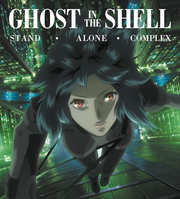

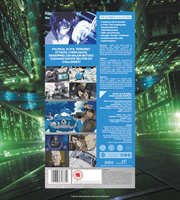


















































































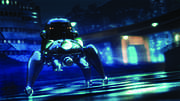










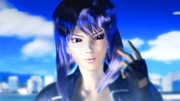



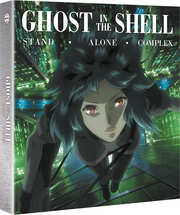




















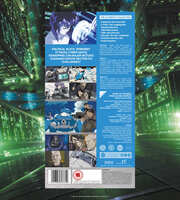




















































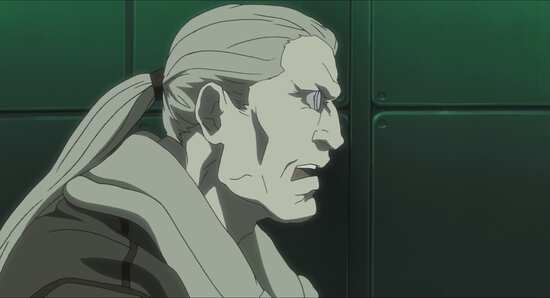
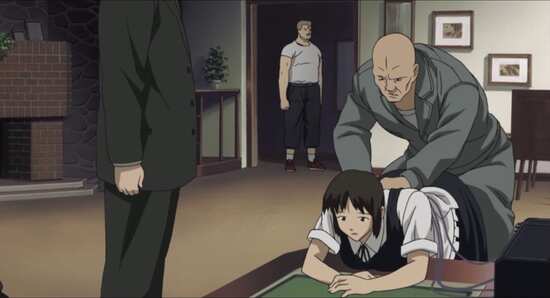
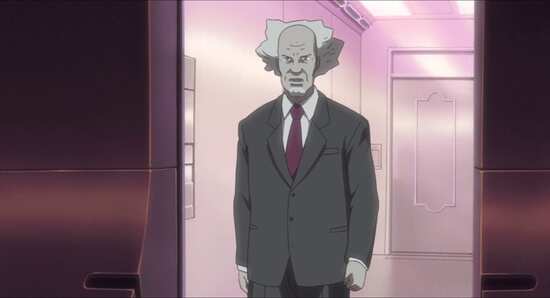
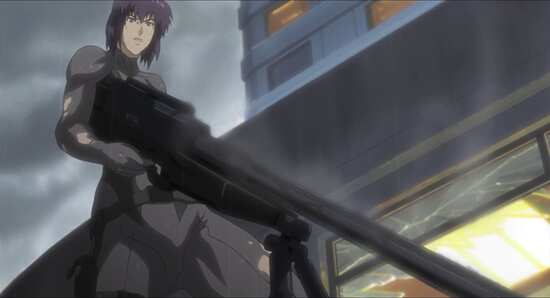
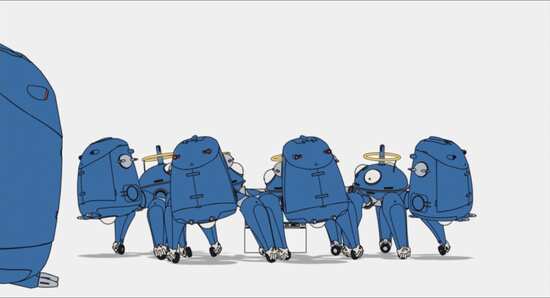
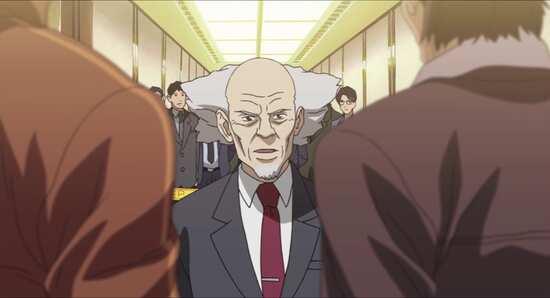
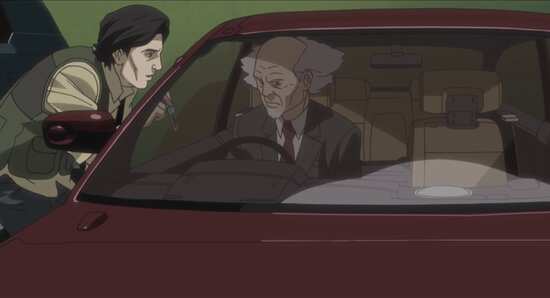
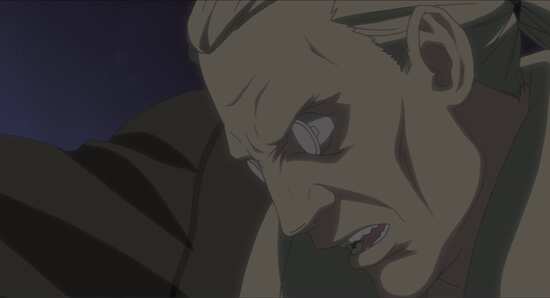
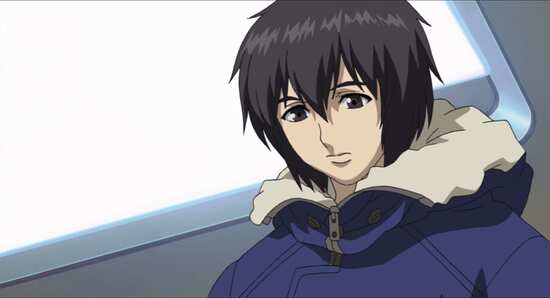
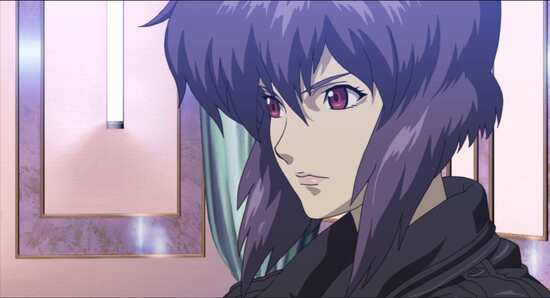
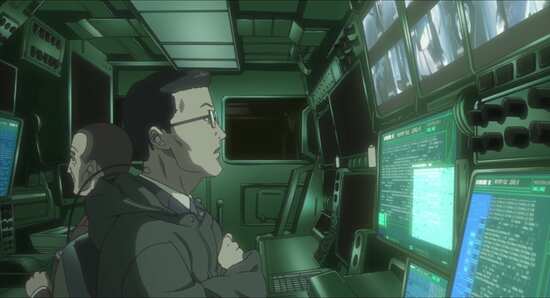
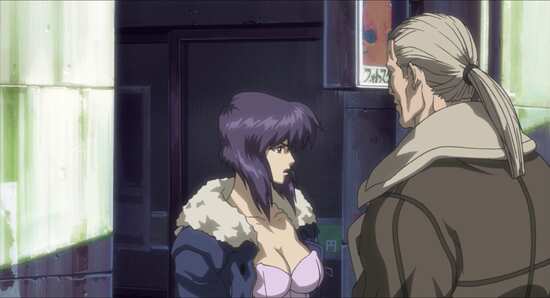
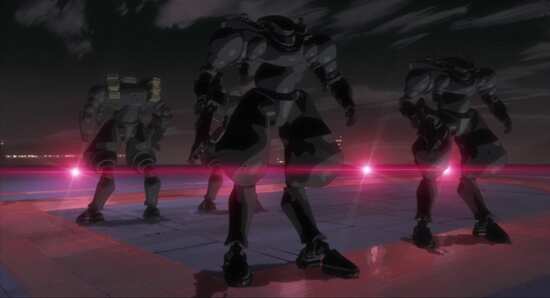
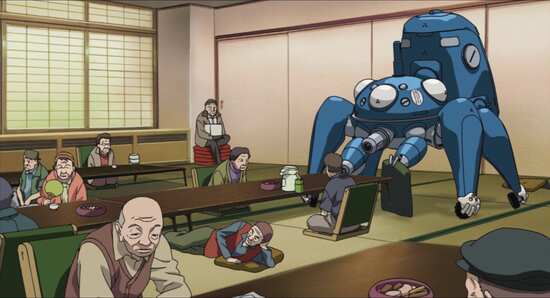
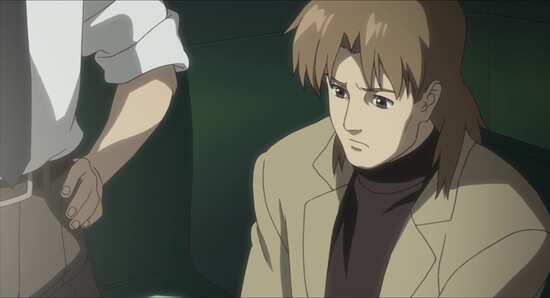
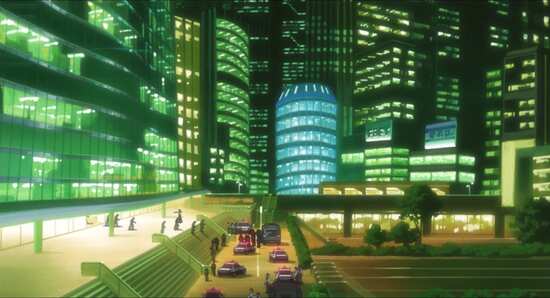
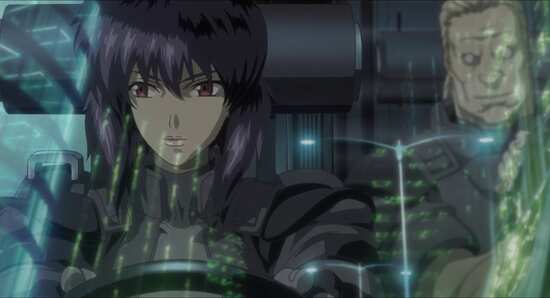
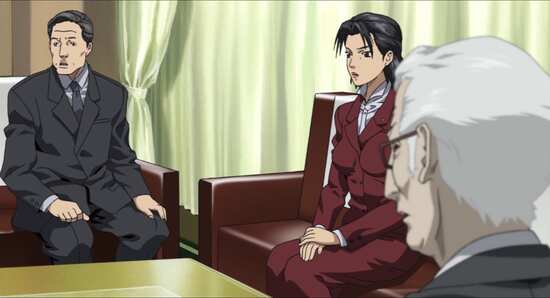
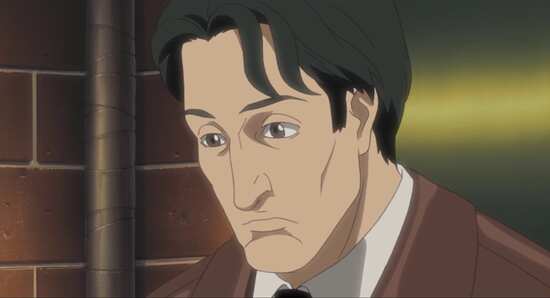
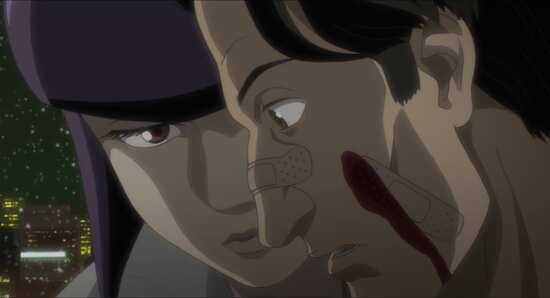
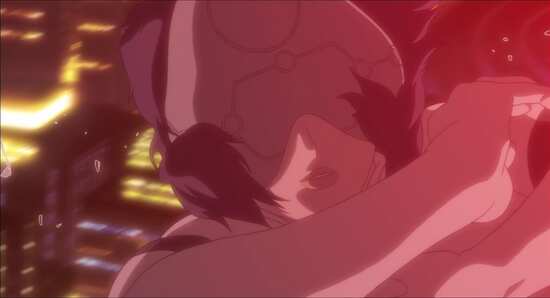
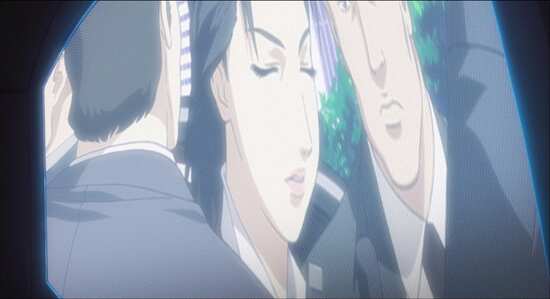
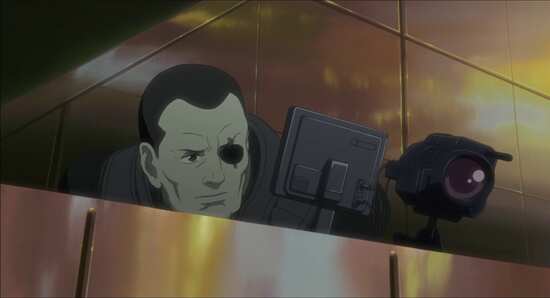
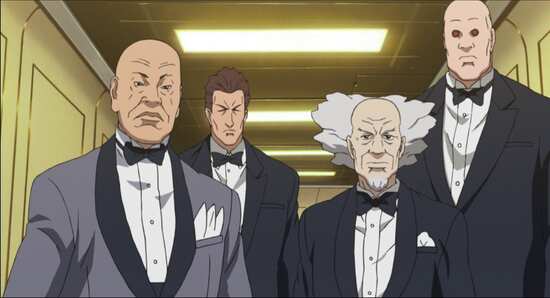

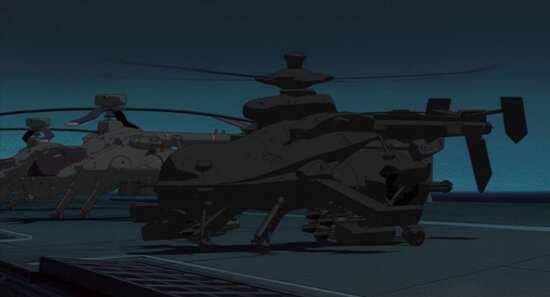
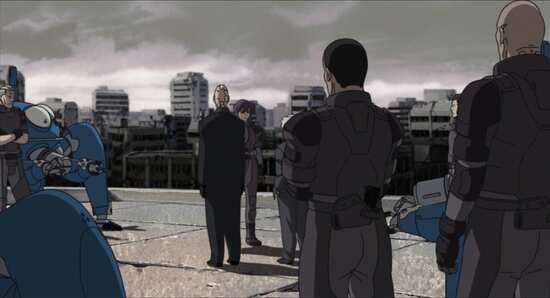
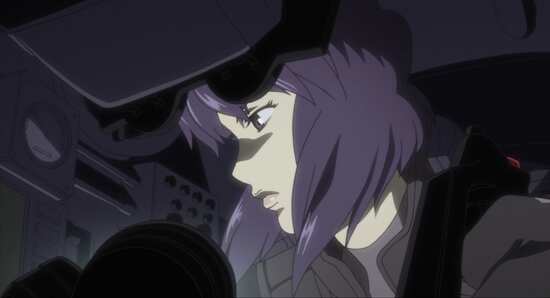
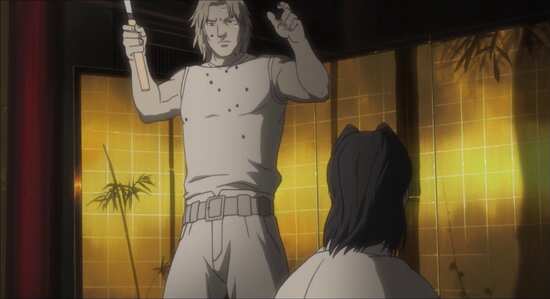
Your Opinions and Comments
Be the first to post a comment!